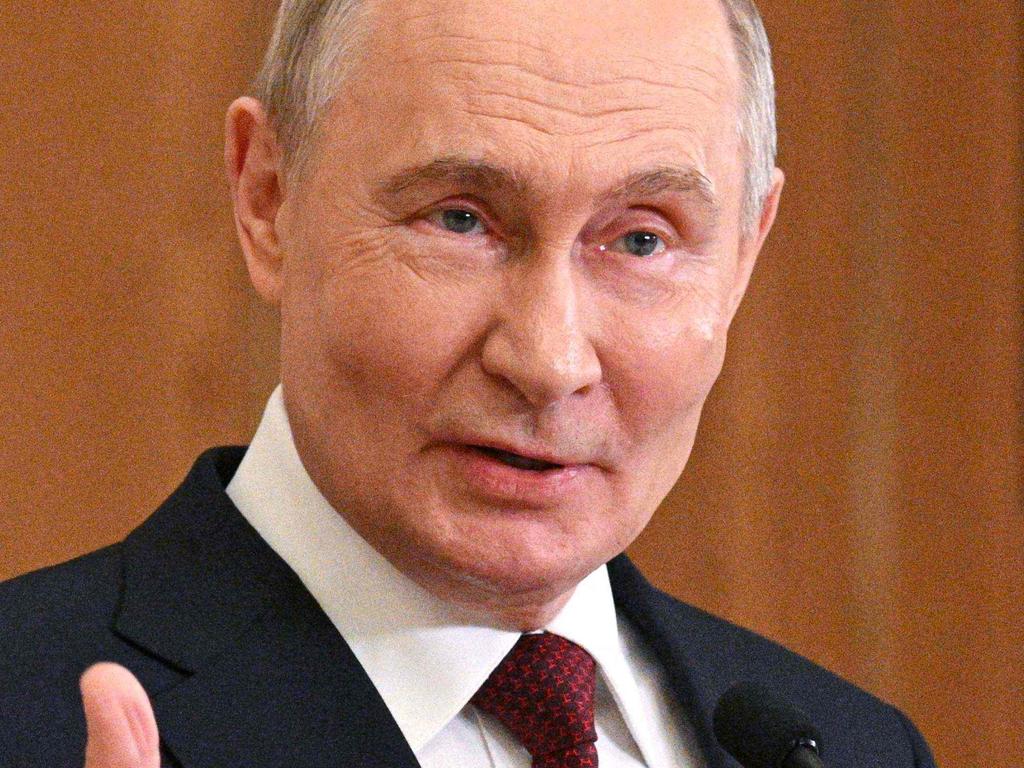Israel-Hezbollah could agree to truce ‘within hours’
The United States believes a ceasefire deal between Israel and Hezbollah is “close”, as rockets continued to fall in Beirut’s suburbs. Follow updates.
World
Don't miss out on the headlines from World. Followed categories will be added to My News.
The United States believes a ceasefire deal between Israel and Lebanon’s Hezbollah is “close” but negotiations are still ongoing, the White House said.
Under the proposal, Israeli forces would withdraw from Lebanon within 60 days, while Hezbollah would move north, further from the Israeli border.
“We believe we’ve reached this point where we’re close,” National Security Council spokesman John Kirby told reporters, adding, however, that “we’re not there yet.”
Mr Kirby said it would be “irresponsible” to confirm press reports about the contents of any deal, adding that he did not want to do “anything that might torpedo our chances.”
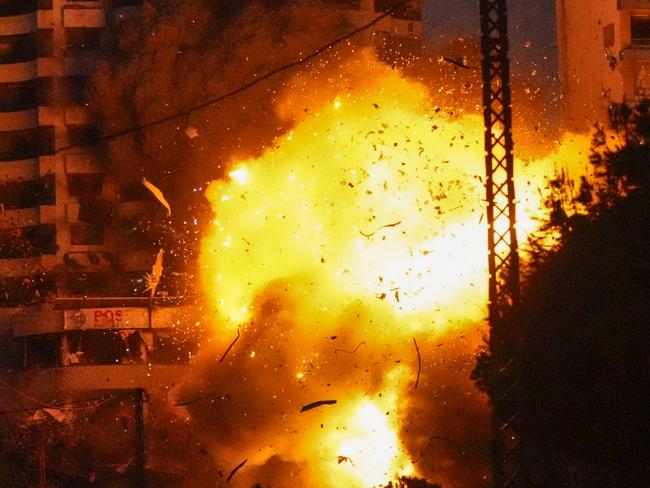
US President Joe Biden had been monitoring the progress of ceasefire talks “very closely” and had been in direct contact with US envoy Amos Hochstein, who visited the region last week, he added.
Mr Kirby would not confirm reports in Saudi media that Mr Biden and French President Emmanuel Macron were set to announce a deal on Tuesday local time, saying only that the two leaders spoke on the Israel-Hezbollah conflict last week.
Reuters reported that Mr Biden and Mr Macron would announce a ceasefire within 36 hours, citing four well placed Lebanese sources.
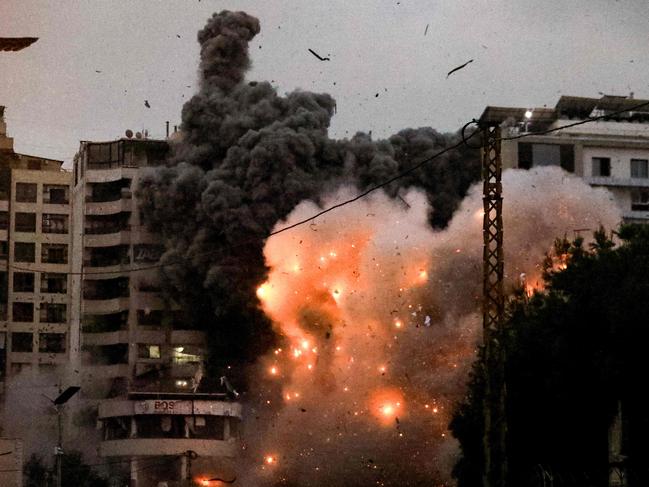
Italy, which holds the rotating presidency of the G7 group of nations, voiced “optimism” about a Lebanon ceasefire.
The US news site Axios had previously reported the parties were nearing an agreement that would involve a 60-day transition period in which the Israeli army would pull back, the Lebanese army would redeploy near the border and Iran-backed Hezbollah would withdraw its heavy weapons north of the Litani River.
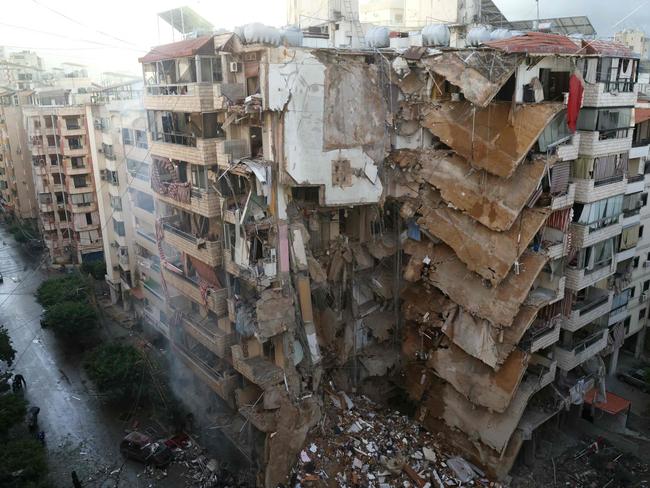
The draft agreement also provides for the establishment of a US-led committee to oversee implementation, as well as US assurances that Israel can take action against imminent threats if the Lebanese military does not, according to Axios.
News of the security cabinet meeting came as the Israeli military said it carried out a wave of strikes on Monday local time, including on Beirut’s southern suburbs, that Israel has repeatedly bombed since late September when it escalated its air campaign in Lebanon.
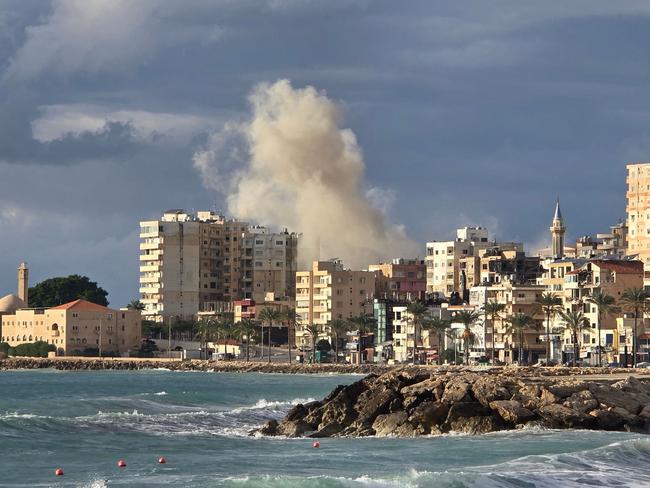
The latest strikes hit around two dozen Hezbollah targets across Lebanon in one hour, the military said.
A statement said “command centres, and intelligence control and collection centres, where Hezbollah commanders and operatives were located”, were targeted.
FOLLOW UPDATES BELOW:
‘WE ARE CLOSE TO A DEAL,’ SAYS ISRAELI AMBASSADOR
The Israeli ambassador to Washington says a ceasefire deal to end fighting between Israel and Lebanon-based Hezbollah fighters could be reached “within days”.
Mike Herzog told Israeli Army Radio there remain “points to finalise” and any deal requires agreement from the government.
However, he said that they are “close to a deal”.
Israeli officials said Prime Minister Benjamin Netanyahu’s security cabinet will convene on Tuesday to discuss a proposed ceasefire.
Among the issues that remain is an Israeli demand to reserve the right to act militarily should Hezbollah violate its obligations under the emerging deal. The deal seeks to push Hezbollah and Israeli troops out of southern Lebanon.
AUSSIE WOMAN INJURED IN WEST BANK SHOOTING
An Australian woman suffered serious injuries when she was hit by shrapnel from a bullet fired into her student housing in the occupied West Bank, near Jerusalem.
Ranem Abu Izneid — who was born in Jordan to a Palestinian family but now lives in Melbourne — is in her third year studying dentistry at Al-Quds University in Abu Dis, SBS reported.
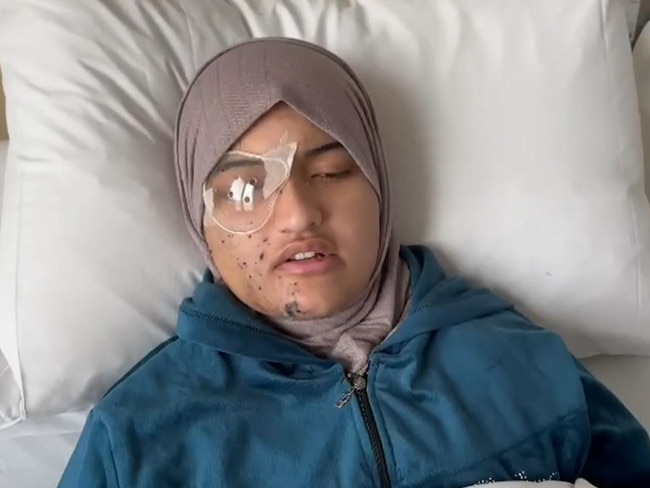
On November 15, a bullet allegedly shot by Israeli forces hit her dorm window, with the shrapnel injuring her.
Abu Izneid suffered injuries to her face, neck, scalp, chest and her right eye leaving her unable to see.
Abu Izneid arrived back in Melbourne on Sunday morning where she is receiving treatment in hospital.
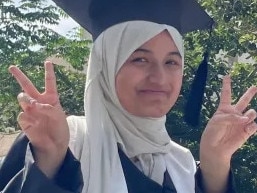
She said she was “experiencing significant pain and emotional distress” and her “future is uncertain”.
“I am facing the prospect of multiple surgeries,” she told SBS from her hospital bed.
“The trauma of the event and the uncertainty about my recovery are overwhelming, as well as the uncertainty of my future health and ability to continue my studies.”
FRESH STRIKES ON BEIRUT
Israel launched two strikes on Beirut’s southern suburbs about an hour after posting evacuation calls online for parts of the Hezbollah bastion on Sunday local time.
“Israeli warplanes launched two violent strikes on Beirut’s southern suburbs in the Kafaat area,” the official National News Agency said.
AFPTV footage showed grey smoke billowing over south Beirut.
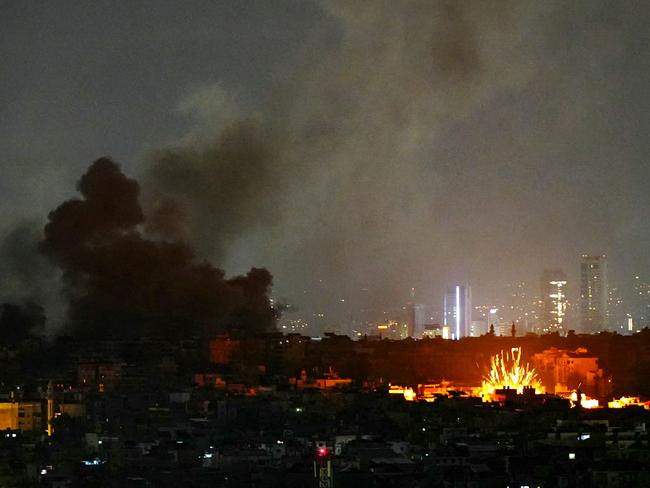
The raids “caused massive destruction over a large geographical area” of the Kafaat district, NNA said.
Israeli military spokesman Avichay Adraee warned on social media platform X that the military would strike “Hezbollah facilities and interests” in the Hadath and Burj al-Barajneh districts, also sharing maps of the areas to be evacuated.
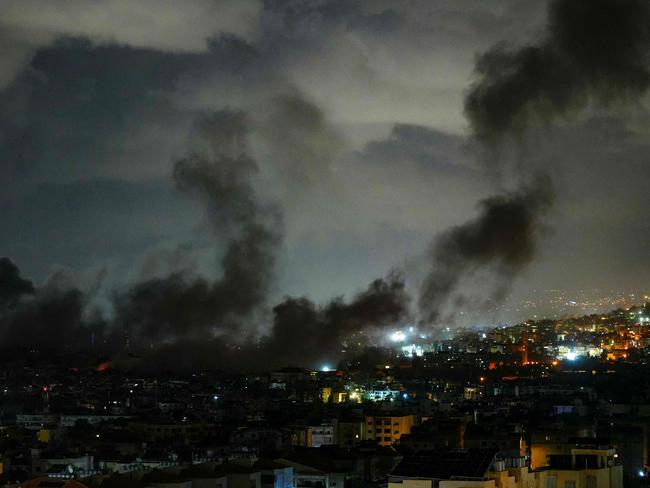
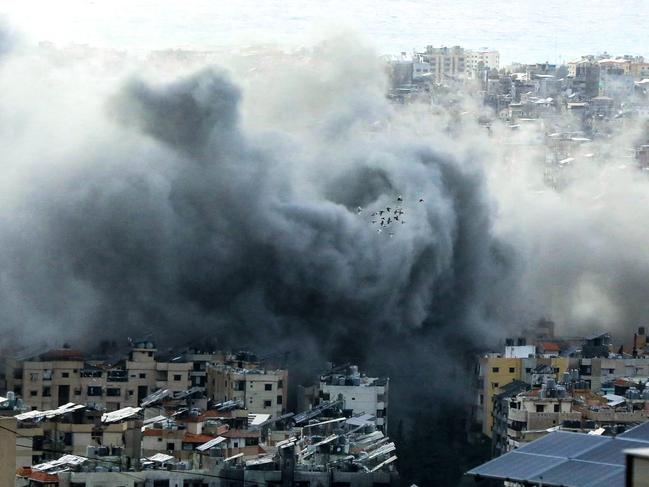
Full-on war erupted following nearly a year of limited exchanges of fire initiated by Iran-backed Hezbollah in support of its ally Hamas, after the Palestinian group’s October 7, 2023 attack sparked the Gaza war.
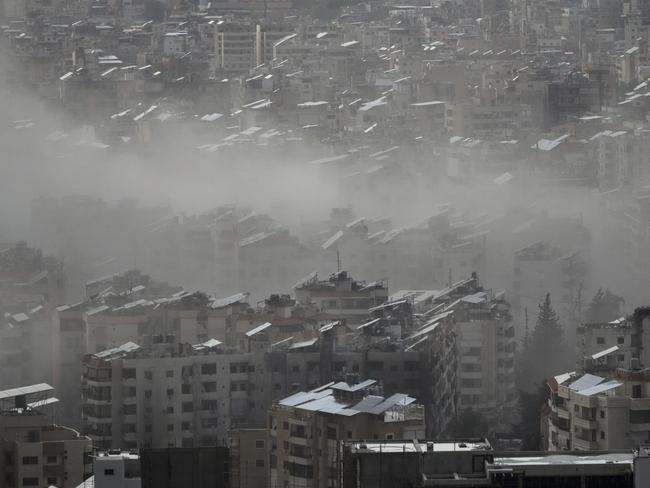
THREE ARRESTED OVER RABBI’S MURDER IN UAE
Emirati authorities said three suspects from Uzbekistan were in custody over the murder of a rabbi, a rare violent incident involving an Israeli citizen in the UAE, which signed a peace agreement with Israel in 2020.
Tzvi Kogan’s death came as a blow to the tiny Jewish and Israeli communities in the Muslim-majority UAE, which have kept a lower profile since the outbreak of the Israel-Hamas war in Gaza in October 2023.
The 28-year-old UAE-based rabbi was found dead by security services last week, following what Israeli officials and an ultra-Orthodox Jewish group he was affiliated with called an anti-Semitic attack.
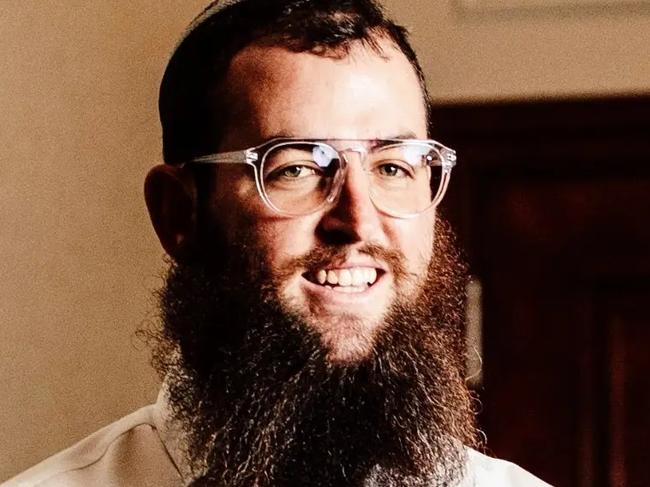
“The authorities revealed the identities of the three perpetrators, all of whom are Uzbek nationals,” said the statement published Monday by the official WAM news agency.
It named them as Olimboy Tohirovich, 28, Makhmudjon Abdurakhim, 28, and Azizbek Kamilovich, 33.
The ministry said authorities were taking “the necessary actions to uncover the details, circumstances and motives of the crime”.
250 ROCKETS AIMED AT ISRAEL
Hezbollah fired around 250 projectiles from Lebanon, with the militants saying their attacks targeted the Tel Aviv area and Israel’s south.
The Iran-backed group said in a statement that it had “launched, for the first time, an aerial attack using a swarm of attack drones on the Ashdod naval base” in southern Israel on Sunday local time.
Later, it said it fired “a barrage of advanced missiles and a swarm of attack drones” at a “military target” in Tel Aviv, and had also launched a volley of missiles at the Glilot army intelligence base in the city’s suburbs. Hezbollah has previously reported attacks against the Glilot base.
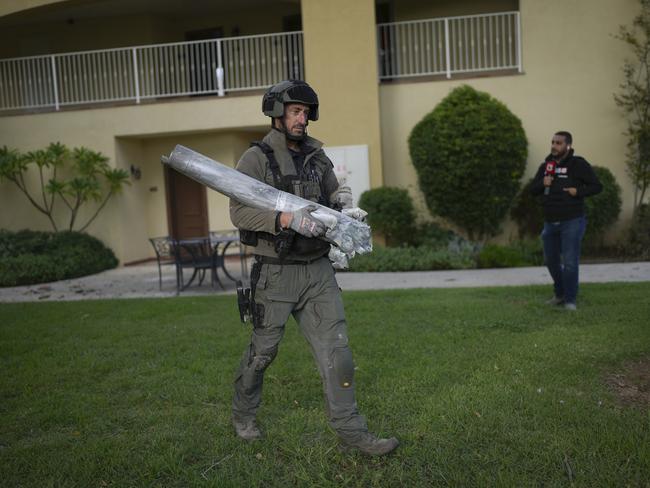
The Israeli military did not comment on the specific attack claims when contacted by AFP, which injured several people.
But it said earlier that air raid sirens had sounded in several locations in central and northern Israel, including in the Tel Aviv suburbs.
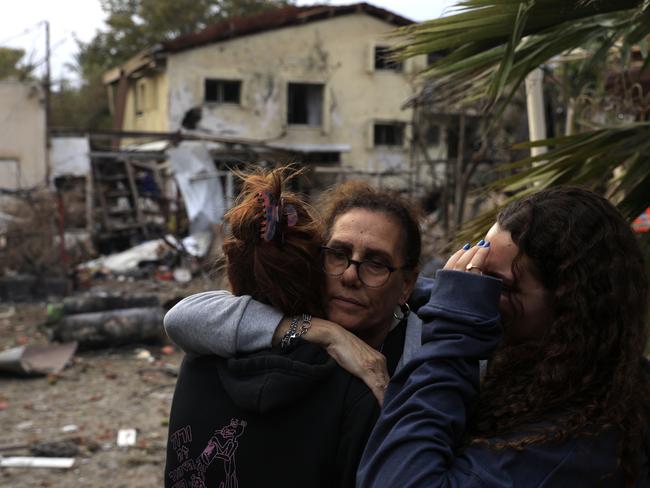
The army later told AFP around 250 projectiles that were fired by Hezbollah have crossed from Lebanon into Israel, updating the figure from 160 earlier on Sunday. Some of the projectiles were shot down.
The military said the highest number of projectiles, 350, was recorded on September 24, 2024.
IRAN TO HOLD NUKE TALKS WITH FRANCE, GERMANY AND UK
Iran said it would hold nuclear talks in the coming days with the three European countries that initiated a censure resolution against it adopted by the UN’s atomic watchdog.
Foreign ministry spokesman Esmaeil Baghaei said the meeting of the deputy foreign ministers of Iran, France, Germany and the United Kingdom would take place on Friday local time, without specifying a venue.
“A range of regional and international issues and topics, including the issues of Palestine and Lebanon, as well as the nuclear issue, will be discussed,” the spokesman said in a foreign ministry statement.
Baghaei described the upcoming meeting as a continuation of talks held with the countries in September on the sidelines of the annual session of the United Nations General Assembly in New York.
HEZBOLLAH COMMANDER TARGET OF ISRAELI AIR STRIKES
Top Hezbollah commander Muhammad Haydar was the target of an Israeli air strike which tore through central Beirut on Saturday killing at least 29 and wounding 67.
Saudi al-Arabiya media outlet reports Haydar, a member of Hezbollah’s Jihad Council, was the intended target of the strike which brought down an eight-storey residential building.
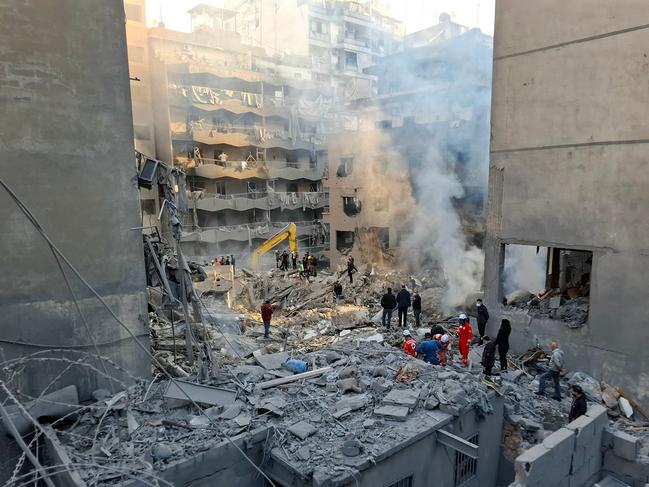
Israel have taken out scores of top Hezbollah commanders in recent months leaving the leadership of the terrorist group in disarray.
Neither Israel nor Hezbollah have commented on the strike yet and it is unclear if the assassination attempt was a success.
Rescue operations were underway in the area on Saturday morning, with an excavator removing the rubble of the eight-storey building, and a fire truck and civil defence rescuers stationed nearby.
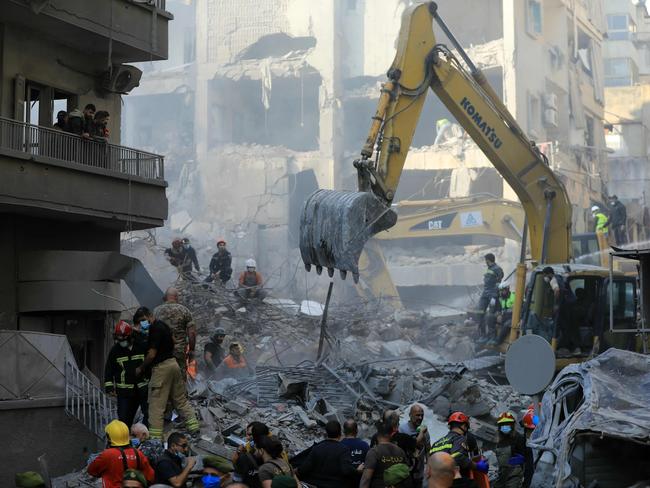
“The strike was so strong it felt like the building was about to fall on our heads,” said Samir, 60, who lives in a building facing the one that was destroyed.
He said he fled his home in the middle of the night with his wife and children. “We saw two dead people on the ground … The children started crying and their mother cried even more,” he told AFP.
The Israeli strike, which hit the working-class Basta neighbourhood, killed at least 11 people and wounded 63, the health ministry said, adding it had also left behind “a large amount of body parts that are being identified”.
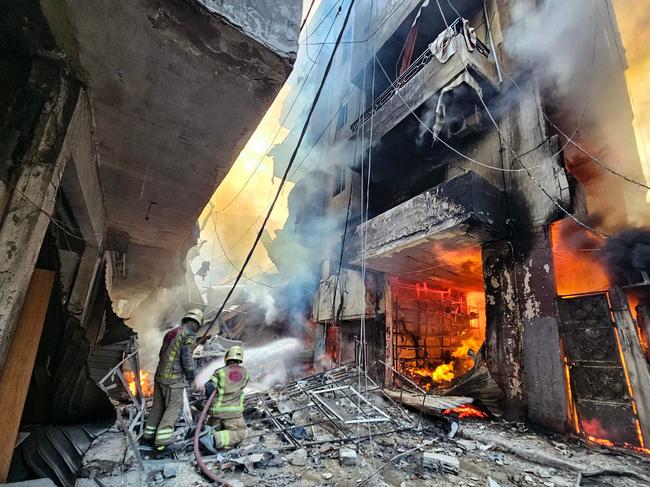
“The final death toll will be determined after DNA tests are carried out,” the ministry said in a statement.
The state-run National News Agency said Israeli jets had launched six missiles at the structure, causing “widespread destruction in buildings” nearby.
The pre-dawn attack in Basta was not preceded by an evacuation warning from Israel’s military. Similar strikes carried out without warning outside of Hezbollah’s traditional bastions have tended to target high-level members.
Another strike hit the neighbourhood of Hadath in Beirut’s southern suburbs, which are a stronghold of Hezbollah.
The Israeli military said it had struck Hezbollah targets in the city’s southern suburbs including “several Hezbollah command centres”.
ITALIAN PEACEKEEPERS WOUNDED IN BEIRUT STRIKES
UN peacekeepers from Italy were wounded by rockets in Lebanon fired by Iran-backed militant group Hezbollah, Italian officials said.
Prime Minister Giorgia Meloni expressed “deep indignation and concern” over “new attacks suffered by the Italian headquarters of UNIFIL (United Nations Interim Force in Lebanon) in southern Lebanon”.
“These attacks are unacceptable,” she said in a statement, calling on “the parties on the ground to guarantee, at all times, the safety of UNIFIL soldiers and to collaborate to quickly identify those responsible”.
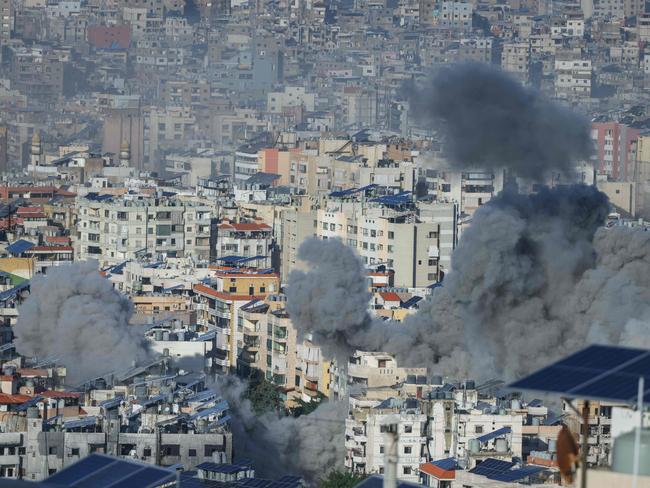
Meloni did not attribute blame but Italian Defence Minister Guido Crosetto said the rockets were “fired by Hezbollah” and called on both Israel and Lebanon to protect the base.
“We condemn this act of war against the representatives of a peacekeeping mission”, he said on X.
A statement from Hezbollah said its fighters targeted “a gathering of Israeli enemy troops in Shamaa with a rocket salvo”.
AUSSIE POLLIES CLASH AFTER WARRANT FOR NETANYAHU ARREST
The Coalition says the International Criminal Court did not have the jurisdiction to issue an arrest warrant for Israeli Prime Minister Benjamin Netanyahu for alleged war crimes committed amid the Gaza conflict.
Former Israeli defence chief Yoav Gallant and Hamas leader Mohammed Deif – who Israel claims to have killed in an air strike in July despite no confirmation from Hamas – were also issued with the unprecedented order.
However, Deputy Liberal leader Sussan Ley said the ICC did not have the jurisdiction to issue the arrest warrants, comments that mirrored those made by the US – one of Israel’s closest international allies.
“Australia agrees with the US that the ICC does not have jurisdiction over these matters. It’s a position that we all used to hold, it’s a position I expect the government to adhere to,” Ms Ley said.
“I know that Australians would be troubled today to see this targeting of a democratically elected leader who is trying to protect his country from terrorists.”
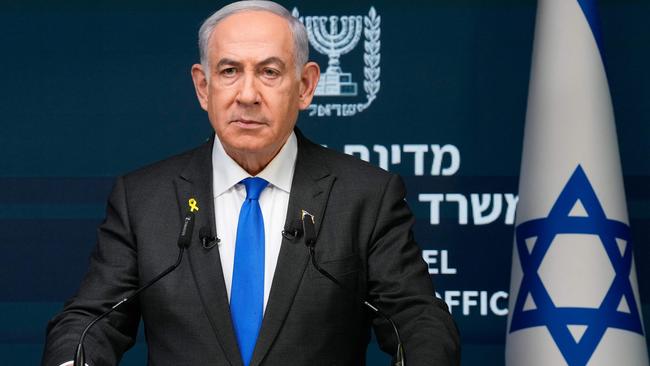
Although the ICC is not able to enforce the warrant, the court’s 124 member states (which includes Australia) are obliged to arrest an individual who has a warrant out against them.
Notably the US and Israel, as well as China, India, and Russia, are not members of the court.
Instead, Foreign Minister Penny Wong said Australia “respected the independence” of the ICC and it had an “important role in upholding international law”.
Australia respects the independence of the ICC and its important role in upholding international law.
— Senator Penny Wong (@SenatorWong) November 21, 2024
Australia is focused on working with countries that want peace to press for an urgently needed ceasefire. pic.twitter.com/SeHLuAk83Z
“We have been clear that all parties to the conflict must comply with international humanitarian law,” Senator Wong shared in a statement.
“Civilians must be protected. Hostages must be released. Rapid, safe and unimpeded humanitarian relief must reach civilians. Aid workers must be protected to enable their lifesaving work.”
NETANYAHU REACTS
The ICC issued arrest warrants for Mr Netanyahu and his former defence minister, as well as Hamas’s military chief Mohammed Deif.
The unprecedented move drew a furious reaction from Mr Netanyahu, who denounced it as anti-Semitic.
“Israel rejects with disgust the absurd and false actions and accusations made against it,” he said.
Israel’s closest allies, including the United States, also slammed the warrants against the Israeli politicians, but rights groups including Amnesty International welcomed them.
“Prime Minister Netanyahu is now officially a wanted man,” said Amnesty Secretary General Agnes Callamard.
The ICC’s move theoretically limits the movement of Mr Netanyahu, as any of the court’s 124 national members would be obliged to arrest him on their territory.
“The Chamber issued warrants of arrest for two individuals, Mr Benjamin Netanyahu and Mr Yoav Gallant, for crimes against humanity and war crimes committed from at least 8 October 2023 until at least 20 May 2024,” the ICC said in a statement.
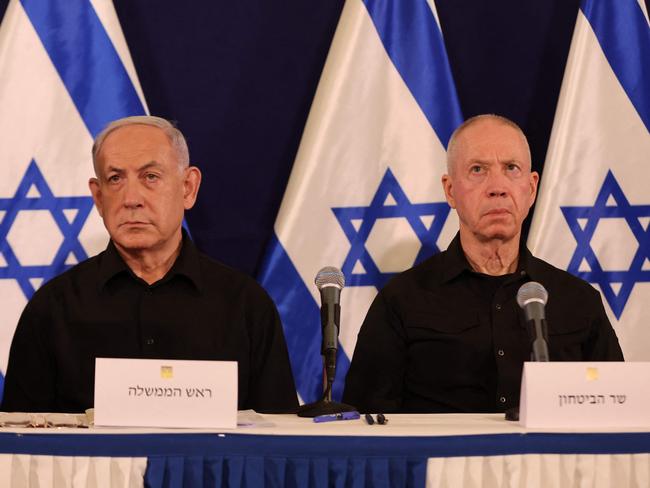
A warrant had also been issued for Deif, it added.
Israel said in early August it had killed Deif in an air strike in southern Gaza in July, but Hamas has not confirmed his death.
The court said it had issued the arrest warrant as the prosecutor had not been able to determine whether or not Deif was dead.
The court’s chief prosecutor Karim Khan urged the body’s members to act on the warrants, and for non-members to work together for “upholding international law”.
“I appeal to all States Parties to live up to their commitment … by respecting and complying with these judicial orders,” Mr Khan said in a statement.
The Palestinian Authority and militant group Hamas both welcomed the warrants – though without mentioning Deif.
The warrants for the Israeli leaders are “an important step towards justice and can lead to redress for the victims in general”, Hamas’s political bureau member Bassem Naim said.
“But it remains limited and symbolic if it is not supported by all means by all countries around the world.”
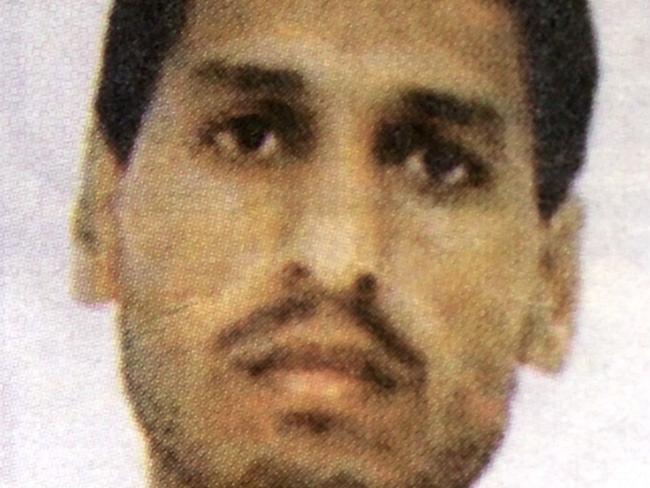
‘REASONABLE GROUNDS’
The court said it had found “reasonable grounds” to believe Mr Netanyahu and Mr Gallant bore “criminal responsibility” for the war crime of starvation as a method of warfare, as well as the crimes against humanity of murder, persecution, and other inhumane acts.
The ICC said the pair were also criminally responsible “for the war crime of intentionally directing an attack against the civilian population”.
The court alleged both men “intentionally and knowingly deprived the civilian population in Gaza of objects indispensable to their survival”, including food, water, medicine, fuel, and electricity.
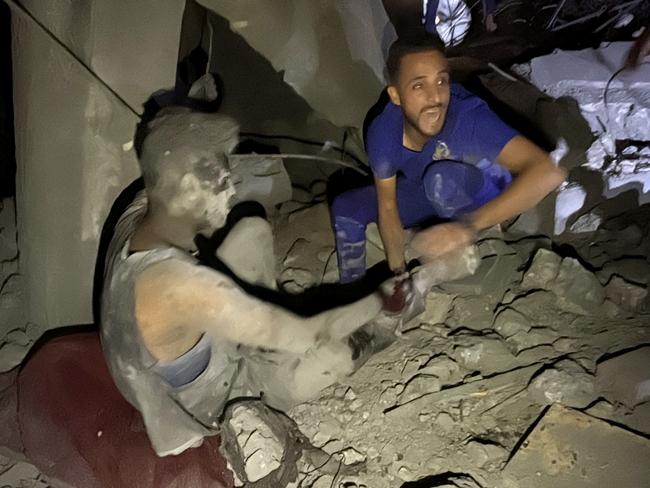
Regarding the war crime of starvation, it said the “lack of food, water, electricity and fuel, and specific medical supplies, created conditions of life calculated to bring about the destruction of part of the civilian population in Gaza”.
This resulted in civilian deaths including of children, due to malnutrition and dehydration, the court charged.
It said it had not yet determined if “all elements of the crime against humanity of extermination were met,” the court said.
– with AFP
More Coverage
Originally published as Israel-Hezbollah could agree to truce ‘within hours’

